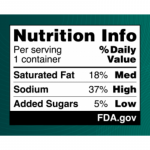
Many more Americans are turning to ketamine for kicks, a new study reports. Recreational use of the anesthetic drug among U.S. adults increased 40% between 2021 and 2022, researchers say. That follows a nearly 82% increase in ketamine use from 2015 to 2019, results show. The more recent increase occurred mainly among young adults 26 to 34, as well as in people with a college degree, researchers found. “These findings are consistent with other research indicating increased use among nightclub attendees in New York City along with increasing law enforcement seizures of illicit ketamine in the U.S.,” wrote the research team led by Dr. Kevin Yang, a third-year resident physician in psychiatry at the University of California-San Diego School of Medicine. Ketamine — also known as “Special K” or Super K” — is typically used an anesthetic for people and animals. In 2019, the U.S. Food and Drug Administration (FDA) approved the use of a nasal spray ketamine derivative called esketamine (Spravato) to treat depression in adults, according to the National Institute on Drug Abuse (NIDA). Ketamine can cause changes in how people perceive reality, the NIDA says. Users might feel like they are floating outside their bodies or dissolving into their environment. “At higher doses, a person may experience extreme detachment from their body and reality, which is called being in a k-hole,” the… read on > read on >



























-300x200.jpg)










